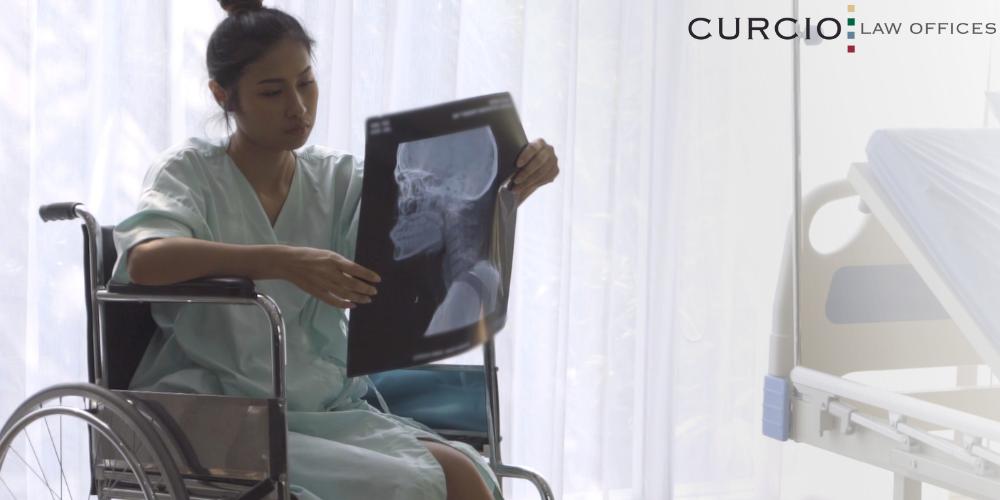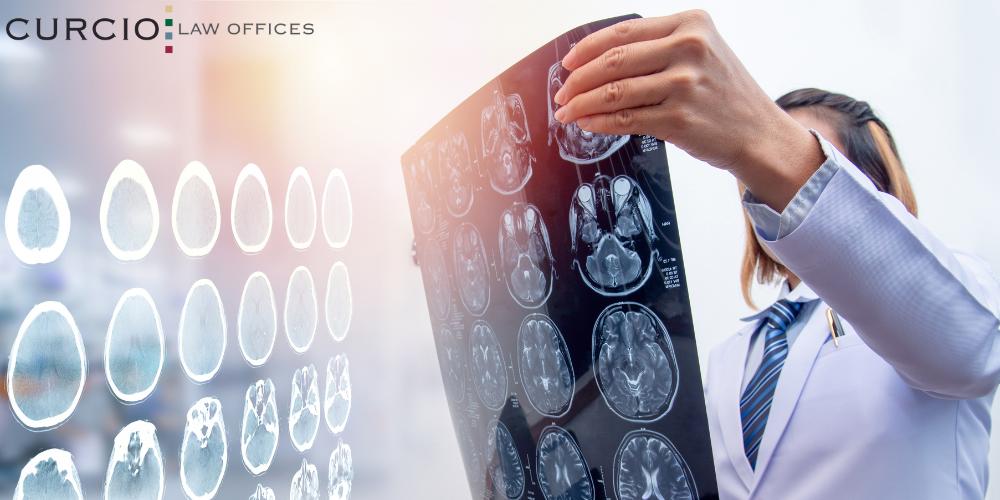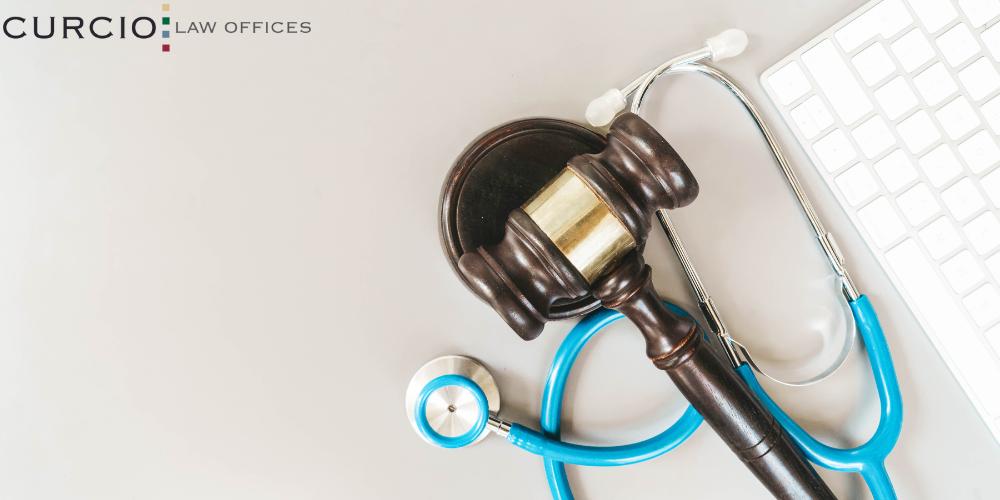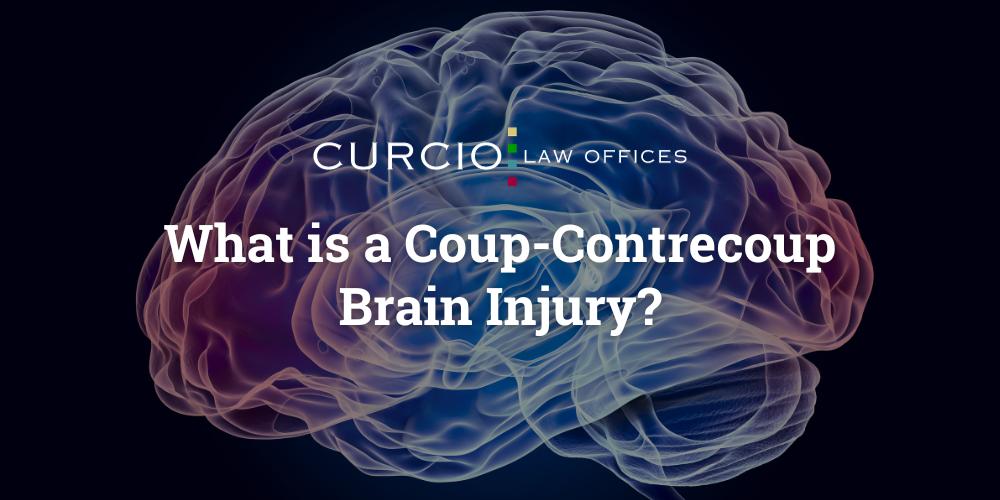Head trauma can be caused in a wide variety of ways and can lead to various mental, physical, and emotional health complications as a result. Things like a car accident or fall accident could cause someone to suffer from a traumatic brain injury, like a coup injury, contrecoup injury, or a coup-contrecoup injury. These kinds of brain injuries occur when the brain itself hits the interior walls of the skull as a result of serious trauma.
If you or a loved one have experienced a brain injury, like a coup-contrecoup injury, as a result of a car accident, workplace accident, or any other form of negligence, the Chicago personal injury attorneys at Curcio & Casciato are here to help. We dedicate ourselves to helping our clients recover compensation for the damages sustained as a result of their injuries, including medical expenses, lost wages, and more. Call a Chicago traumatic brain injury attorney with Curio Law Offices at (312) 321-1111 and schedule a free consultation with us regarding your case.
Coup vs. Contrecoup vs. Coup-Contrecoup Brain Injuries
To understand the difference between coup, contrecoup, and coup-contrecoup injuries, we have to understand how brain injuries happen. The human brain rests inside the skull and floats in cerebrospinal fluid, which helps protect the brain from trauma and provides it with nutrients.
When a stationary head is hit with a moving object, or when a moving head hits a stationary object, the brain moves inside the skull. When a blunt impact injury is severe enough, the deceleration forces of the impact can cause the brain to strike the skull walls, which can cause a brain injury.
Most coup, contrecoup, and coup-contrecoup injuries occur as a result of car accidents, sports accidents, and slip-and-fall accidents. In a car accident, a person’s head can hit the steering wheel, dashboard, car door, or other hard surface, causing a head injury like a coup or contrecoup injury. In some cases, the impact can be so forceful that it causes both a coup and a contrecoup injury, often referred to as coup-contrecoup injury.
Coup Brain Injury
A coup injury occurs when the brain strikes the part of the skull closest to where the initial impact was, and often occurs when the head is hit by a moving object. Let’s say someone is hit by a baseball on the front of their head. The force of the impact can cause their head to fly backward, but since their brain is free-floating in spinal fluid, their brain won’t move with it. That means their skull will move backward and hit the front of their brain, causing a coup injury.
Contrecoup Brain Injury
A contrecoup injury occurs when the brain strikes the opposite side of the skull from where the impact was, and it often occurs when the head hits a stationary object. For example, if someone slips, falls, and hits their head on the floor, their body will move towards the floor, but their brain will want to stay in the same place that it was before the fall. Because of this, the skull will move downwards, hitting the brain on the way down, causing a contrecoup brain injury.
Coup-Contrecoup Brain Injury
Coup-contrecoup injuries occur when someone sustains a coup injury and a contrecoup injury from the same traumatic accident. These can occur when the head is struck by a moving object or when the head hits a stationary object. If the blunt force trauma is severe enough, it can cause the brain to strike the inside of the skull on both the site of impact and the opposite side, simultaneously causing a coup and contrecoup injury.
Let’s use the example of a car accident. If a car accident causes someone to very suddenly stop, their body will continue moving forward until an outside force acts upon it. This outside force can be a seat belt or airbag, but sometimes, this outside force is the steering wheel, the windshield, or the seat back in front of them.
The initial impact of the head striking a hard surface can cause a contrecoup injury, and if the force of the impact is great enough, the brain can rebound and strike the other side of the skull, causing a coup injury. This is called a coup-contrecoup injury.

Is a Concussion the Same Thing as a Coup-Contrecoup Brain Injury?
A coup-contrecoup injury is a type of concussion. A concussion is a traumatic brain injury caused by a jolt of sudden movement or a hard blow to the head, which can include a direct hit to the head or a rapid acceleration/deceleration of the head. Since coup-contrecoup brain injuries are often caused by impact from a moving object or sudden violent movement of the head, they would be considered concussions.
Concussions and coup-contrecoup injuries can also be further classified depending on the severity of the brain injury. A severe coup-contrecoup injury could cause the brain’s nerve fibers to tear, creating what is called a diffuse axonal injury. If a person is showing signs of a concussion, a coup-contrecoup injury, or a diffuse axonal injury, they should seek medical care as soon as possible to prevent further damage to their brain.
Coup-Contrecoup Brain Injury Symptoms
Symptoms of coup-contrecoup injuries vary depending on the parts of the brain that were injured. For example, if the front and the back of the brain were damaged, the victim would most likely exhibit the symptoms indicative of damage to their frontal lobe, which is at the front of their brain, and their occipital lobe, which is at the back of their brain.
Some of the symptoms of a coup-contrecoup injury, like memory loss or loss of cognitive function, can indicate serious damage to the brain. If you were in an accident involving head trauma and you begin exhibiting these symptoms, you should seek medical attention as soon as possible.
Frontal Lobe Damage Symptoms
The frontal lobe has a wide range of functions, but primarily, it controls a person’s language and speech, rational thinking, and analytical reasoning. Traumatic brain injuries that impact the frontal lobe can inhibit or change a person’s ability to speak or form rational thoughts.
When a coup-contrecoup injury causes damage to the frontal lobe, the injury victim may experience symptoms, such as:
- Memory loss;
- Aphasia (difficulty forming, recognizing, and processing words);
- Changes in personality;
- Difficulty controlling emotions;
- Motor control problems, including problems staying balanced;
- Difficulty controlling impulsive behavior; and
- Difficulty performing executive functions.
Parietal Lobe Damage Symptoms
The parietal lobe is located on the back half of the brain near the top of the head and controls sensation perception and information processing. If a coup-contrecoup injury damages the parietal lobe, a person may experience:
- Numbness or burning;
- Directional difficulties;
- Problems with hand-eye coordination;
- Changes in pain perception; and
- Difficulty reading or writing.

Occipital Lobe Damage Symptoms
The occipital lobe is located near the very back of the head and controls a person’s ability to process visual information, including shapes, colors, and motion. If a coup-contrecoup injury damages the occipital lobe, a person may experience symptoms, such as:
- Partial blindness;
- Problems with visual recognition;
- Problems locating objects;
- Visual hallucinations; and
- Word blindness.
Temporal Lobe Damage Symptoms
As the name suggests, the temporal lobe is located on the part of the brain closest to the temples. It controls a person’s ability to process auditory information, so when a person suffers damage to their temporal lobe in a coup-contrecoup injury, they may experience symptoms like:
- Hearing loss;
- Memory loss;
- Attention problems;
- Aphasia;
- Changes in emotional behavior; and
- Difficulty recognizing faces and objects.
Additional Brain Injury Symptoms
There are some additional symptoms that brain injury victims should be on the lookout for. If someone experiences any of these symptoms after suffering from head trauma, they should seek medical attention as soon as possible. These additional coup-contrecoup injury symptoms can include:
- Dizziness;
- Headaches;
- Nausea;
- Sensitivity to lights and sounds;
- Difficulty speaking; and
- Seizures.
Common Causes of Coup-Contrecoup Brain Injuries
Coup-contrecoup injuries often occur as a result of traumatic accidents, like motor vehicle accidents and fall accidents. Any accident that causes the brain to move around and strike the interior walls of the skull can cause a coup-contrecoup injury.
Since coup-contrecoup injuries usually only occur as a result of severe blunt force trauma, like in a serious car accident, coup-contrecoup injury victims may experience a wide range of other issues as well. These can include broken bones, contusions, lacerations, and spinal cord injuries. The Chicago motor vehicle accident lawyers at Curcio & Casciato can help accident victims recover compensation for all of their injuries. Call us at (312) 321-1111 to schedule your free consultation, where you can discuss your case with a member of our team.

Treatment for Coup-Contrecoup Brain Injuries
Since coup-contrecoup injuries can cause such a wide range of symptoms, they are often treated in various ways. In the acute phase of brain injury, medical professionals may monitor the patient to identify any life-threatening issues before they cause additional harm. In severe cases, they may need surgery to reduce swelling or prevent further brain bleeding.
From there, doctors will recommend treatments based on their symptoms and the location of their coup-contrecoup injuries. For example, those with damage to their parietal lobe may require physical therapy to help retrain their brain and allow them to move and function like they could before their accident.
In the later stages of treatment, patients may require psychotherapy to treat any mood or behavior change that occurred as a result of their coup-contrecoup injury. They may also require medication to help manage any anxiety, depression, or PTSD their accident or injury caused.
Can You Sue for a Traumatic Brain Injury?
Yes, coup-contrecoup victims can sue the person responsible for their injuries in a personal injury suit. When accidents are a result of negligence, like in the case of many car accidents, victims can sue the negligent party and recover compensation for any mild or severe injury. For example, if someone sustains a coup-contrecoup injury in Chicago texting while driving accidents, the person who caused the accident may be found financially liable.
Since many coup-contrecoup injuries result from these kinds of accidents, victims may be able to file these claims to recover the economic and non-economic costs of their injuries. If you or a loved one has suffered from a coup-contrecoup injury as a result of someone else’s negligence, the Cook County personal injury lawyers at Curcio & Casciato are here to help. Call us at (312) 321-1111, or contact us online, and we’ll reach out to you regarding your case.
Damages for Traumatic Brain Injuries
Injuries such as traumatic brain injuries can have a major effect on victims both physically and financially. Victims of coup-contrecoup injuries may be able to recover financial compensation from damages caused by their injury. They may receive compensation for things like:
- Past medical bills;
- Future medical bills and treatments, like physical therapy;
- Lost wages;
- Loss of earning potential;
- Loss of enjoyment on life;
- Physical and mental anguish;
- Loss of consortium; and
- The average cost of a funeral in Illinois, if the injury leads to wrongful death. For more information about recoverable damages in wrongful death lawsuits, contact a Chicago wrongful death attorney today.

Call Chicago Brain Injury Lawyers at Curcio & Casciato Today
If you or a loved one has suffered from a coup-contrecoup injury as a result of another party’s negligence, the traumatic brain injury lawyers at Curcio & Casciato are ready to help. We fight for our clients to ensure they receive the maximum compensation for their injuries. In addition to brain injury cases, we also help clients recover compensation for injuries caused by medical malpractice, premises liability, and more. Call our Chicago traumatic brain injury attorneys today at (312) 321-1111 to schedule a free case evaluation with a member of our team.



